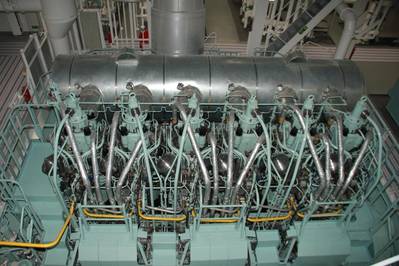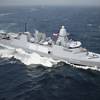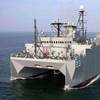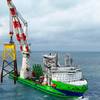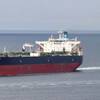Starting on April 18, Waterfront Shipping Company Ltd. (WFS), Marinvest/Skagerack Invest (Marinvest), Westfal-Larsen Management (WL), and Mitsui O.S.K. Lines, Ltd. (MOL) attended the traditional ship naming ceremonies and took delivery of the first Korean and Japanese built methanol-fueled ocean tankers, the Lindanger, Mari Jone and Taranaki Sun.
Hyundai Mipo Dockyard hosted the Korean ship naming ceremony, while Minaminippon Shipbuilding Co., Ltd. hosted the Japanese ceremony; where all three of these 50,000 dead weight tonne vessels were built.
The vessels are built with the first-of-its kind MAN B&W ME-LGI two-stroke dual-fuel engines that can run on methanol, fuel oil, marine diesel oil or gas oil. The engine was developed by MAN Diesel & Turbo and is based on the company’s proven ME-series, with its approximately 5,000 engines in service. “When operating on methanol, the ME-LGI significantly reduces emissions of CO2, NOx and SOx. Additionally, any operational switch between methanol and other conventional fuels is seamless,” stated Ole Grøne Senior Vice President, Head of Marketing and Sales, MAN Diesel & Turbo.
Lindanger and Mari Jone were named in honor of long-service WFS employees: Linda Bowles dedicated 23 years to WFS and passed away in 2013, and Jone Hognestad has led WFS as President for 17 years. Taranaki Sun was named after Methanex’s New Zealand production facility where it has produced methanol in the Taranaki province for approximately 30 years. The vessels’ names also incorporate the long standing naming traditions of the ship owners, emphasizing the close cooperation and joint efforts making this innovative vessel design a reality.
With the growing demand for cleaner marine fuel to meet environmental regulations, methanol is a promising alternative fuel for ships that can meet the industry’s increasingly stringent emissions regulations, said MAN Diesel & Turbo. Methanol is a biodegradable, clean-burning marine fuel that significantly reduces smog-causing emissions such as particulates, sulphur oxides and nitrogen oxides.
Lindanger was delivered to WL on April 20 and Taranaki Sun delivered to MOL on April 22. The Mari Jone will be delivered to Marinvest/WFS on April 28. All vessels will be chartered by WFS.
MAN Diesel & Turbo has developed the ME-LGI dual-fuel engine for operation on methanol, heavy fuel oil (HFO), marine diesel oil (MDO) or marine gas oil (MGO). The engine is based on the company’s ME-series, with its approximately 5,000 engines in service, and works according to the Diesel principle as methanol is a low-flashpoint, liquid fuel. When operating on methanol, the ME-LGI uses HFO, MDO, or MGO as a pilot fuel, significantly reduces emissions of CO2, NOx and SOx, and eliminates methanol slip. Additionally, any operational switch between methanol and other fuels is seamless. Tests on the 2-stroke MAN B&W ME-LGI engine, when running on methanol, have recorded the same or a slightly better efficiency compared to conventional HFO-burning engines.



